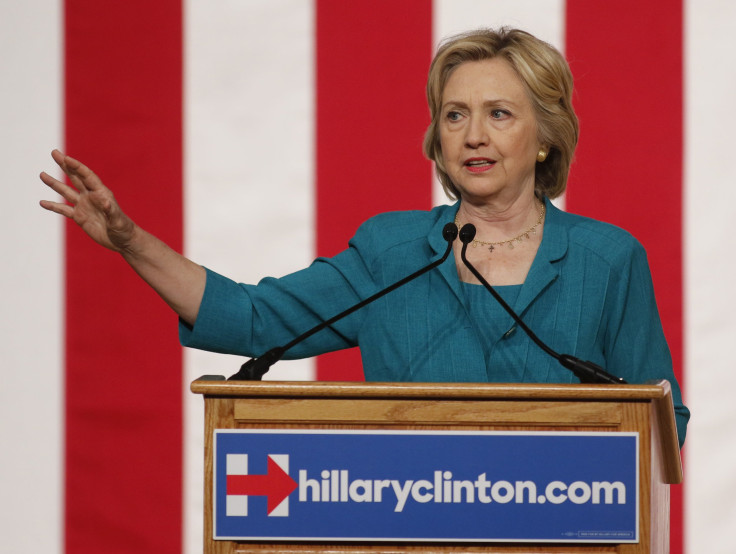
“The Cuban embargo needs to go once and for all,” Hillary Clinton said on Friday in a live televised address to Florida International University in Miami. While she didn’t mention them by name, Clinton used her speech to criticize Republican primary candidates. Florida Senator Marco Rubio supports the continuation of the embargo. So does former Florida Gov. Jeb Bush. Florida International University was symbolic choice for Clinton’s speech. Not only is Miami home to Cuban-expats, but the school has employed Marco Rubio as an adjunct speaker, as Politico pointed out earlier today.
Clinton dismissed her opponents “outdated Cold-War lens,” stressing that the 50-plus year trade embargo had not worked to bring change to the island, which have been led by the Communist government since 1959 under the watch of Raúl and Fidel Castro. While she acknowledged “skepticism” in the Cuban-American community -- older Cuban expats in particular are more likely to oppose engagement on account of the Castro regime -- she argued that lifting the Cuba embargo was a “threat” to the Castros and not a “gift.” It’s not a new position for Clinton, who recommended a shift on Cuba to President Obama in 2009 while acting as Secretary of State. As part of that shift, the administration rolled back travel and remittance restrictions on U.S. citizens.
Jeb Bush’s campaign issued it’s own retorts on Thursday, in response to advance announcements of Clinton’s comments.
“Hillary Clinton and President Obama claim that our Cuba policy is a relic of history, but it’s the Castro regime that is stuck in the cold war,” Bush’s spokeswoman, Emily Benavides, said in a statement quoted by The Guardian . “As Governor Bush said last week, ‘The Cuban people are not imprisoned by the past, they are imprisoned by the Castro regime.’”
Clinton also dismissed critics of ending the embargo who point to other communist countries where economic engagement has not sparked Democracy. One of those critics is Marco Rubio , whose argument appeared in New York Magazine in June.
“China began its economic opening in 1979; today it remains a one-party state, where the human rights activist Liu Xiaobo, the 2010 Nobel Peace Prize winner, remains in prison, along with other dissidents. Calls for political pluralism are silenced. Vietnam, too, years after throwing its doors open to American corporations, continues to be tightly controlled by the Communist Party.
“For many people in both countries, the standard of living has improved, but at a price: Prospects of political freedom for regular citizens are extinguished as elites with connections to the party become economic oligarchs. Chinese Communist Party leaders and their families have become rich beyond belief, and their grip on power seems unshakable.”
Ending the embargo is not just a presidential issue. It will take an act of congress to end it. There are currently two such bill currently proposed, one in the House and one in the Senate. You can read more about them here .
© 2025 Latin Times. All rights reserved. Do not reproduce without permission.




